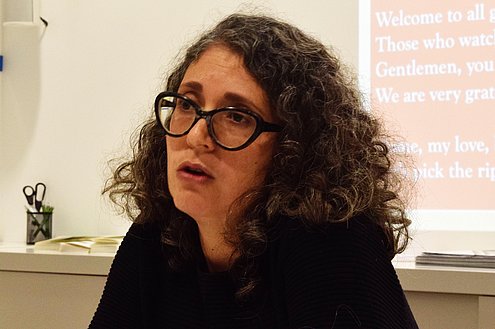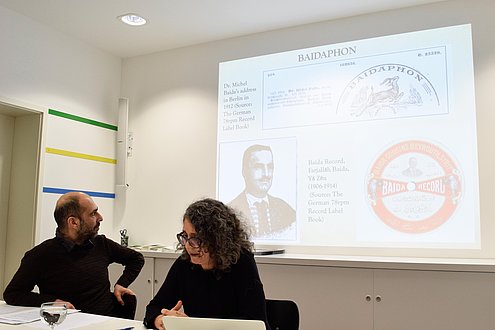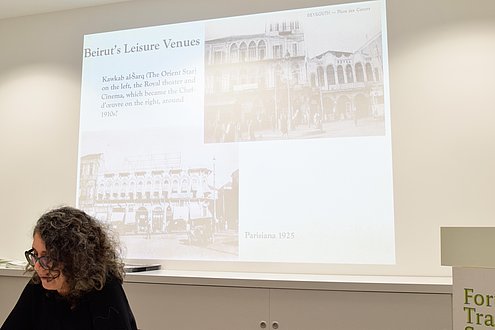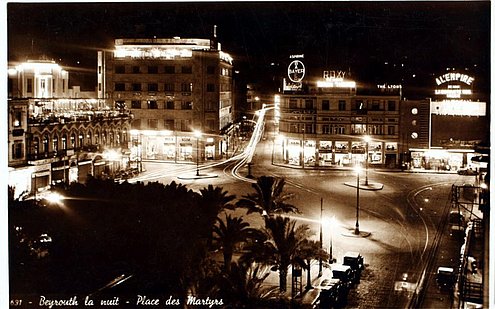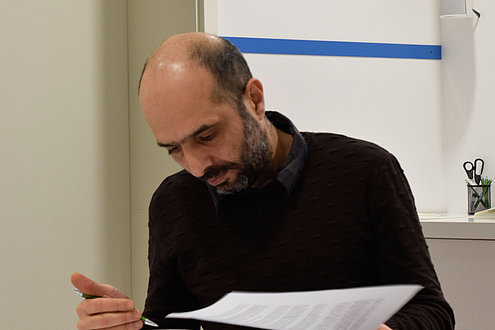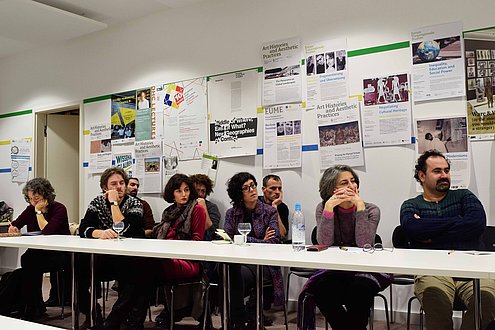Diana Abbani
Diana Abbani
Wednesday, 19 December 2018, 5.00 pm - 6.30 pm |
Forum Transregionale Studien, Wallotstr. 14, 14193 Berlin
Musical Life in Beirut: Leisure, Cosmopolitanism and Struggles at the Beginning of the 20th Century
Diana Abbani
(EUME Fellow 2018/19)
Chair: Yektan Türkyilmaz
(EUME Fellow 2017-20)
In 1927, As'ad 'Aql, a journalist writing in al-Ma'raḍ newspaper signalled alarm over the epidemic popularity of Beirut’s entertainment places. He wrote: "Can I describe [Beirut’s] bright cabarets and clubs opened all night, its crowded theatres, thriving bars and ballrooms? In every street you find a tavern, a dancing or a gambling club. These are popular products desired by the wealthy and the destitute, frequented by the rich and the penniless. […] This is the progress of “Westernized” [ġarbiyya] Beirut, its nobility and its urbanism, Beirut hates stagnation and always walks, a step forward and twenty steps backwards”.
In these words, he summarised the impact of global changes on Beirut during the 1920s and 1930s. The musical scene reflected the image of a city entering modernity and presenting itself as an open and cosmopolitan one, with a particular inclination towards Western culture. Beirut opened gradually to the entertainment world of two major capitals: Cairo and Paris. On the one hand, the establishment of the French mandate (1919-1943) affected Beirut's musical life, provoking a growing tendency for the westernization of entertainment venues, ways of consuming music, as well as artistic and cultural tastes. While the arrival of Egyptian singers and vaudeville troupes to the Levantine city invaded its artistic scene, which was deeply influenced by popular Egyptian music. Many voices tried to imitate this music; others rose to criticize this Egyptian domination while seeking to find a distinct musical identity. In parallel to this Egyptian wave, Beirut tried to produce its own commercialized music: Satirical socio-political monologues (in the local dialect) and patriotic sung poems (in classical Arabic) flourished in the emerging modern city. A new “popular music” was being formed which was essentially an urban music closely related to the emergence of a new middle class, the market economy and new technologies. Through the analyses of 78-rpm records, newspaper articles and ads, Diana Abbani aims to follow the rise of the entertainment world in Beirut under the French mandate, and particularly the gradual formation of a new popular music in the city in a context of identity crises.
Diana Abbani received her PhD in Arabic Studies from Sorbonne University with a dissertation entitled “Music and Society in Beirut during the Nahḍa Period”. She holds an MA in History from Sorbonne University and an MA in Political Science from Saint Denis University, Paris. Her work focuses mainly on the social and cultural in life in the Levant, particularly on Beirut, at the turn of the 20th century. In her dissertation, she draws a social and cultural history of Beirut’s musical scene in the first quarter of the twentieth century. She offers a historical rethinking of the cultural and musical history of Beirut by looking at the relation between music, technology and society through the analysis of a set of primary sources. During the academic year 2018/19, Diana will be a EUME Fellow and associated with the Friedrich Schlegel Graduate School of Literary Studies at Freie Universität Berlin.
<iframe frameborder="no" height="300" width="100%" src="https://w.soundcloud.com/player/?url=https%3A//api.soundcloud.com/tracks/563376078&color=%23ff5500&auto_play=false&hide_related=false&show_comments=true&show_user=true&show_reposts=false&show_teaser=true&visual=true" allow="autoplay" scrolling="no"></iframe>

